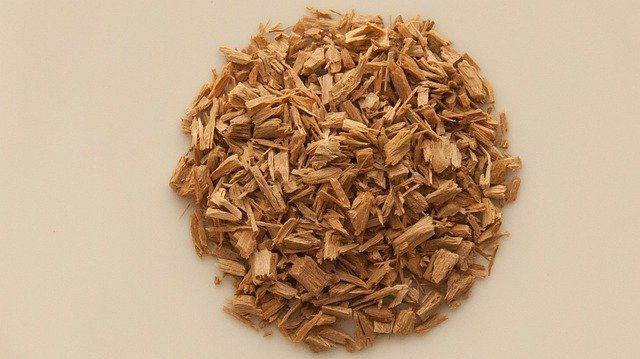 Sandalwood essential oil is a rare and precious oil with many applications. Its aroma is deep, woody, spicy and earthy with a touch of sweet. It is used as a base note in perfumery. I like to blend sandalwood with floral notes, like lavender, rose and ylang-ylang, in natural perfumes.
Sandalwood essential oil is a rare and precious oil with many applications. Its aroma is deep, woody, spicy and earthy with a touch of sweet. It is used as a base note in perfumery. I like to blend sandalwood with floral notes, like lavender, rose and ylang-ylang, in natural perfumes.
Click here to purchase the best sandalwood oils.
This is my current perfume recipe I’ve been using:
Ingredients:
Sandalwood essential oil 35 drops
Rose essential oil 21 drops
Vanilla tincture ½ oz
Castor oil 1/3 oz
Directions:
Mix the castor oil and vanilla tincture and pour into a suitable, 1 ounce bottle. Then add the essential oils, cap and give it a good shake. You will notice that the fragrance settles and really forms its true beauty when it has had a chance to set overnight.
To use, shake well before applying. Dab on all the chakra points, wrists and neck. It is light, sweet and grounding.

Fragrance of the Subtle Body
Traditional sandalwood essential oil is from India and comes from an every-blooming evergreen tree, Santalum album. The essential oil is extracted from steam distillation of the crushed wood. However, S. album is at risk for extinction and so I always use the essential oil from the species S. austrocaledonicum, which is being sustainably managed in Australia. It is also known as Vanuata, as this is the Australian island of which the sandalwood species is native.
Yogis attribute sandalwood oil as the fragrance of the subtle body, the energetic aura. It is used as an aid to awaken the kundalini and connected with both the root and crown chakras. Some can be dabbed on the chakra points before meditation to aid in slowing the ego mind and relaxing into spirit.
Properties:
-Antiseptic and antifungal, making it useful for acne, inflamed and itchy skin, as well as skin fungus- calming, slowing, harmonizing and so useful for excess nervous energy, irritability and aggression
-Used for infections, including staph and strep
-A tonic for dry and dehydrated skin
-Used with lavender and helichrysum for burns
-As a base for “attars”, traditional Indian perfumes and as a fixative in natural perfumery
Find Ethical Sources
The vast majority of sandalwood e.o. on the market is either adulterated or harvested in an unethical manner, including over-harvesting and poaching trees. I highly encourage the reader to seek only the essential oil from the S. austrocaledonicum species.
